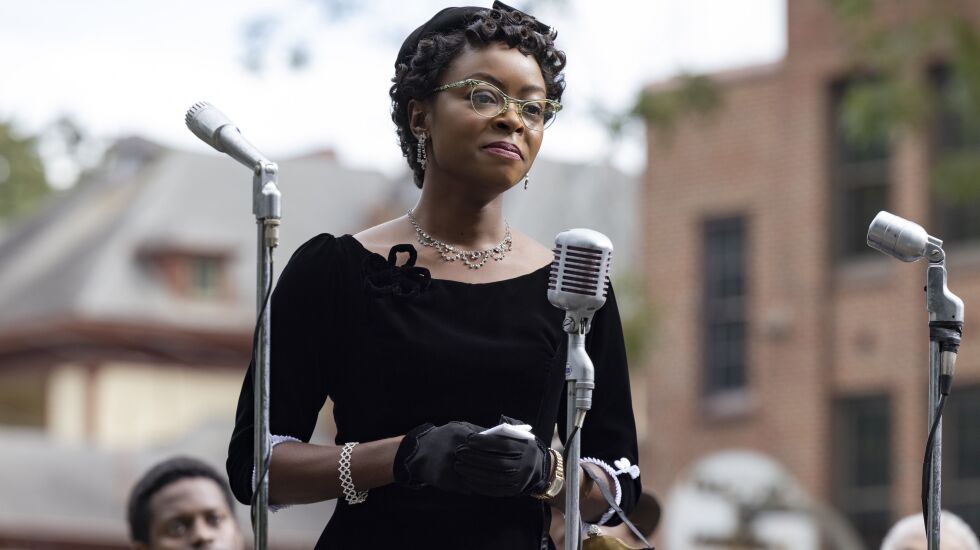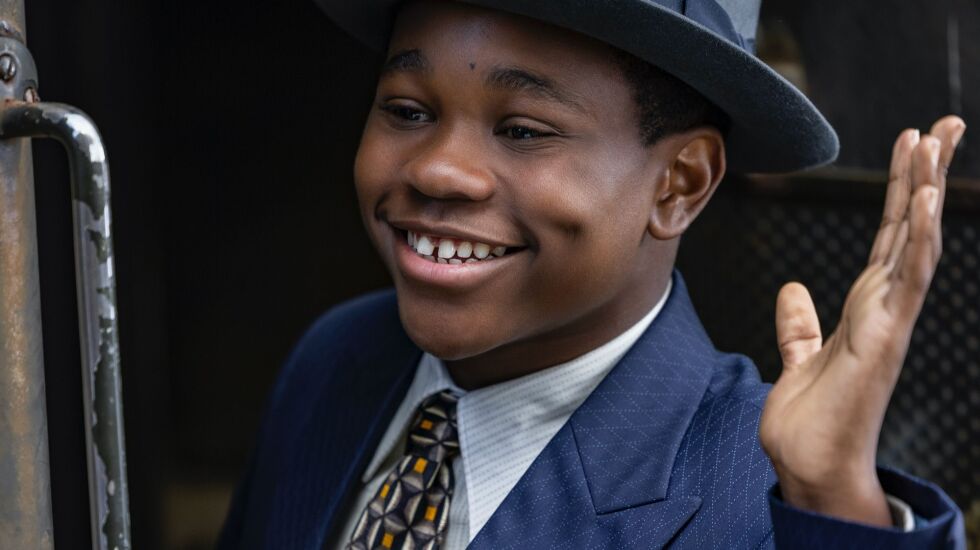
Think of someone you know who is in their early 80s and has enjoyed a long and enriching life, and who still might be with us for another decade or even longer, the Good Lord willing.
Now consider that even though the story of the horrific lynching of Emmett Till feels like a part of long-ago America, Emmett would be 81 years old if alive today. The year 1955 might sound like ancient history to some, but it’s not; what happened to Emmett Till might seem like a horrific reminder of a bygone era — and yet, the story of the United States in the 21st century is filled with far too many chapters about the killings of innocent Black boys and young men.
Clichéd as it might sound, it’s true: More than ever, people need to know about Emmett Till and his heroic mother, Mamie.
For the second time this year, we’re getting a powerful, well-acted and at times searing and heartbreaking dramatization of the story of Emmett Till and Mamie Till-Mobley. In January, ABC gave us the three-part, six-hour limited series “Women of the Movement,” with Tony Award winner Adrienne Warren delivering resonant and richly layered work as Mamie. Now comes co-writer and director Chinonye Chukwu’s feature film “Till,” with the wonderful actress Danielle Deadwyler as Mamie, hitting different notes at times and making the role her own in an equally powerful performance.
The similarities in the two works extend beyond the faithful interpretation of real-life events and characters, from the design of the second-floor Till apartment in a two-flat on the South Side of Chicago to the clothing worn by Emmett and Mamie and their extended family members to the look and atmosphere of the courthouse in Mississippi in which Emmett’s killer were put on trial, etc., as well as the introduction in both works of certain supporting characters who had major roles in the civil rights movement.
This is a good thing. In both cases, the directors, writers, production team and actors do great justice to the memories of Emmett Till and Mamie Till-Bradley, as she was known at the time.
In the opening sequences set in Chicago, we see how Mamie dotes on her 14-year-old son Emmett (Jalyn Hall), whether they’re singing along to doo-wop on the car radio or engaging in playful banter in the cozy living room of the apartment on S. St. Lawrence Avenue, with Mamie’s mother Alma (Whoopi Goldberg) and her boyfriend Gene (Sean Patrick Thomas) adding to the overall feeling of a warm and happy family. (It should be noted “Till” was actually filmed in Atlanta.)

Emmett is beyond excited about a late-summer trip to visit his cousins in Mississippi and Alma feels it’s important for Emmett to know his roots — but Mamie is worried Emmett’s mischievous tendencies (which he shares with just about every 14-year-old who ever lived) will get him into trouble in the South. She cautions him about how to comport himself, but Emmett is all smiles and “Don’t worry Mom.” Things will be just fine.
We know the horrors lurking around the corner, but it’s still shocking and soul-crushing to witness the events play out: the interaction between Emmett and the white shopkeeper Carolyn Bryant (Haley Bennett) which includes Emmett whistling at Bryant; Carolyn’s husband Roy Bryant (Sean Michael Weber) and brother-in-law JW Milam (Eric Whitten) kidnapping, torturing and murdering Emmett, and the scenes back in Chicago, with Mamie first learning of Emmett’s disappearance and then, a few days later, getting the news she knew was coming: Her boy wasn’t coming home alive.
When Mamie sees Emmett’s nightmarishly disfigured face and body, it’s beyond anything a mother should ever have to bear — and it’s also the moment Mamie becomes an important part of a movement. She has a photographer from Jet magazine take a photo of Emmett, she insists upon an open-casket memorial — and the world comes to know what happened to Emmett Till. We’re introduced to key civil rights figures such as Medgar Evers (Tosin Cole) and Dr. T.R.M. Howard (Roger Guenveur Smith), the wealthy Black entrepreneur, surgeon and activist who welcomed Mamie into his home during the trial and urged her to use her voice to speak out for civil rights, but Deadwyler commands the screen in every sequence. When Mamie takes the stand and the prosecution essentially puts her on trial, the camera remains focused on her face as Deadwyler answers each question in an intense, staccato cadence, almost as if she’s in the military, responding to an officer. It’s a bold and brilliant acting choice — we feel as if employing this style of speech was Mamie’s only way of getting through her testimony without letting them see her break.
In a small but invaluable role as Mamie’s mother, Whoopi Goldberg turns in magnificent and grounded work. Praise as well for young Jalyn Hall, who in just a few scenes reminds us Emmett Till was more than the handful of photos we’ve seen of him, living and dead. In “Till,” we see how Emmett had music in his heart and a bounce in his step and was just beginning his life’s path when monsters came calling in the middle of the night — and we’re once again filled with admiration for Mamie Till-Mobley, who made sure we never forgot.







